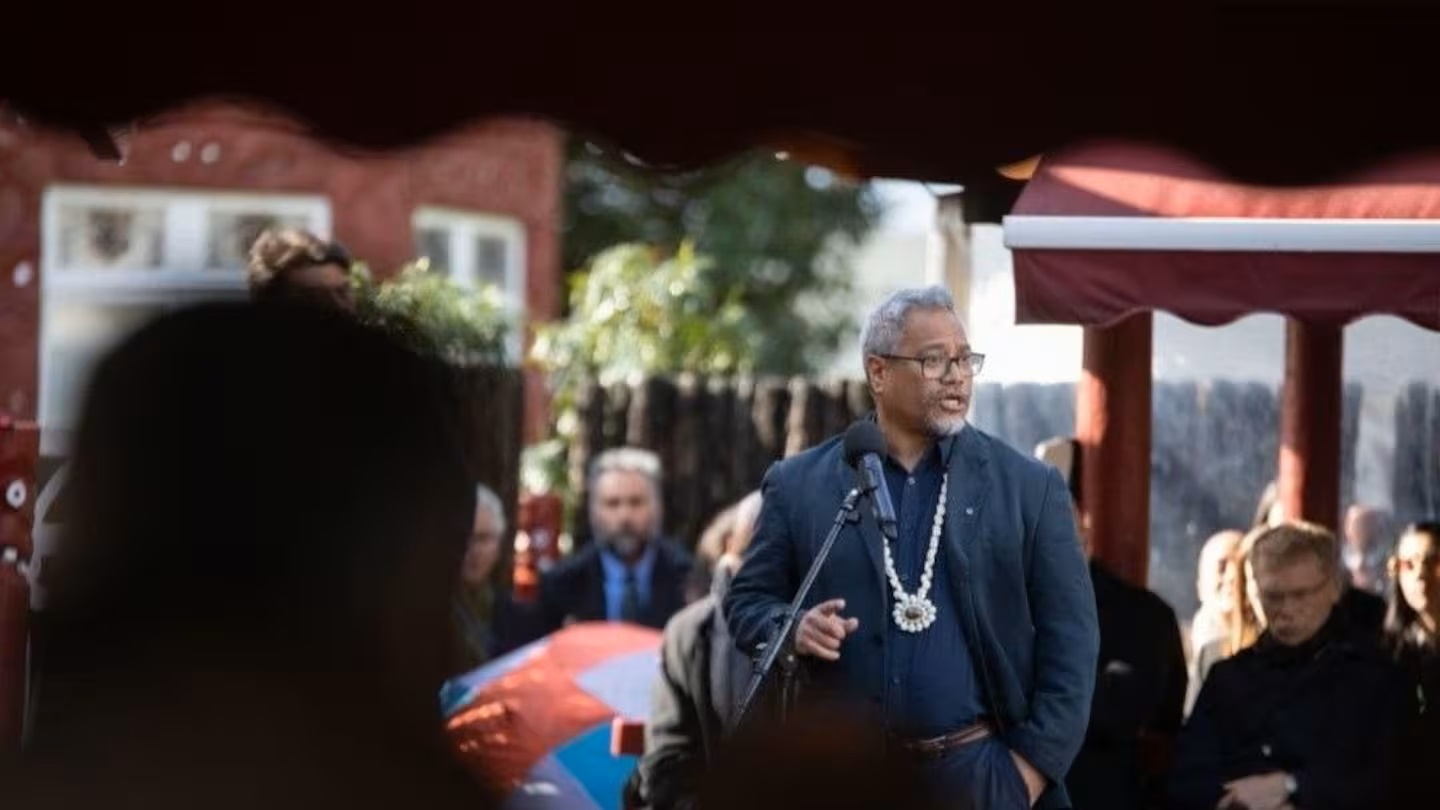By Teanau Tuiono
This is something I pondered during a recent visit to the Marshall Islands. During my time there I reflected upon their calls for climate action and demands for nuclear justice, contemplating what this means for us, their southernmost neighbours, in our shared Pacific home.
After World War II, the United States, the United Kingdom and France conducted over 315 atmospheric and underground nuclear tests at 10 sites across the region, including in Kiribati, French-occupied Polynesia, Australia and the Marshall Islands.
The United States alone carried out 67 nuclear tests on the attols Bikini and Enewetak in the Marshall Islands in the 1940s and ‘50s.
Today, the Marshall Islands is seeking regional and international support to address nuclear legacies, something they advocated for at the recent Pacific Islands Forum (PIF).
As geopolitical tensions across the Pacific intensify, I think it is more crucial than ever to reaffirm our nuclear-free status – not just as a legal commitment but as a moral and strategic stance.
The competition for influence in the Pacific has escalated, with major powers increasingly viewing the region through a strategic and militaristic lens. I believe this shift poses a direct threat to the independence and unity of PIF and challenges the nuclear-free status that has been a cornerstone of Pacific identity for decades.
The Treaty of Rarotonga, signed in 1985, was, in my opinion, a landmark achievement in establishing the South Pacific Nuclear Free Zone.
However, the treaty, while groundbreaking, was not without compromises. These compromises have become even more significant in the context of Aukus, the trilateral security pact between Australia, the United States and the United Kingdom, which includes the controversial acquisition of nuclear-powered submarines by Australia.
Although these submarines may not technically violate the Treaty of Rarotonga due to carefully crafted loopholes, the spirit of the treaty is undoubtedly undermined, in my opinion. This has led to growing frustration across the Pacific, the region’s peoples seeing these actions as a betrayal of the region’s nuclear-free commitments.
In light of these challenges, I consider the call to revitalise the Treaty of Rarotonga as not just timely but essential.
I think a stronger, more comprehensive treaty would not only reaffirm the region’s commitment to being nuclear-free but also provide a crucial buffer against the increasing militarisation of the Pacific.
The increasing military presence in the region under the guise of aid and security highlights the need for a renewed focus on genuine regional co-operation.
This means addressing the root causes of instability in the Pacific, such as climate change, resource scarcity and the lingering impacts of colonialism.
Reaffirming our nuclear-free status in the current geopolitical climate is not just a matter of legal obligation, but in my opinion is a vital step toward ensuring the long-term peace, security and independence of the Pacific.
By acknowledging the legacy of nuclear testing, rejecting the militarisation of our region and strengthening our commitments to a nuclear-free Pacific, we can honour the past while protecting the future.
Teanau Tuiono is a Green Party list MP and party candidate for Palmerston North.














